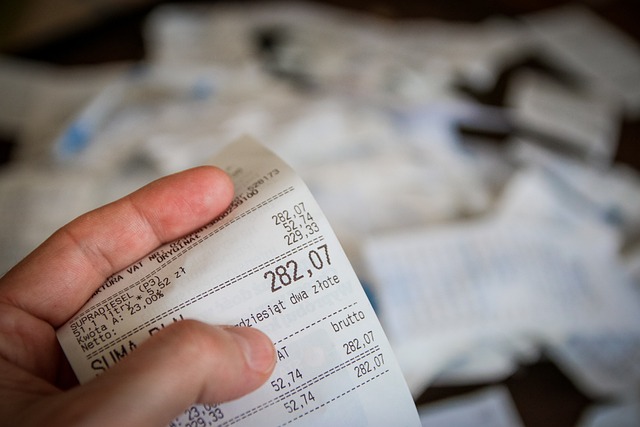Crypto assets have gained popularity in South Africa, prompting the South African Revenue Service (SARS) to issue taxation guidelines. Tax treatment varies based on holding periods and asset types—investment, trading capital, or business-related. Maintaining detailed records of transactions, including purchase/sale dates, prices, and fees, is crucial for compliance. Accurate tax reporting involves categorizing crypto holdings, determining capital gains/losses, and completing SARS tax forms precisely. Taxpayers must be meticulous to avoid errors, underreporting, or misrepresenting gains/losses due to the complex nature of crypto taxation in South Africa.
Reporting crypto assets on your tax return in South Africa can seem daunting, but with a step-by-step approach, it becomes manageable. This guide delves into the intricacies of crypto taxation in South Africa, offering clear instructions for identifying and categorizing your digital holdings. We’ll walk you through calculating capital gains or losses, accurately filling out tax forms, and navigating essential considerations to ensure compliance. By following these steps, you can confidently manage your crypto assets’ tax implications.
- Understanding Crypto Assets and Their Tax Implications in South Africa
- Identifying and Categorizing Your Crypto Holdings
- Determining the Capital Gain/Loss for Each Transaction
- Filling Out the Tax Return Forms Correctly
- Important Considerations and Common Pitfalls to Avoid
Understanding Crypto Assets and Their Tax Implications in South Africa

In recent years, crypto assets have gained significant popularity in South Africa, attracting investors and enthusiasts alike. However, understanding the tax implications of these digital currencies is crucial for anyone looking to navigate the South African tax system effectively. Crypto assets, such as Bitcoin, Ethereum, and various other tokens, are subject to taxation in the country, much like traditional investments. The South African Revenue Service (SARS) recognizes crypto as a form of property and has issued guidelines on how these assets should be reported and taxed.
The tax treatment of crypto assets varies depending on how they are acquired and held. Short-term gains from trading crypto may be subject to capital gains tax, while long-term holdings might be treated differently. It’s essential for individuals with crypto investments to keep detailed records of their transactions, including purchase prices, dates, and sales amounts. This information is vital when completing your tax return, ensuring compliance with SARS regulations on Crypto Assets Taxation in South Africa.
Identifying and Categorizing Your Crypto Holdings

Identifying and Categorizing Your Crypto Holdings is a crucial step in accurately reporting your crypto assets on your tax return in South Africa. Begin by compiling a comprehensive list of all your crypto holdings, including the type of cryptocurrency, the quantity held, and the acquisition cost for each asset. Categorize these holdings based on their nature—are they investments, trading capital, or part of a business? This distinction is vital as it determines the tax treatment and reporting requirements.
For instance, if you’ve mined cryptocurrencies like Bitcoin or Ethereum, record the dates and amounts earned. If you’re an investor, keep track of purchases and sales, along with any associated fees. South African crypto taxation follows global trends, recognizing different types of crypto activities and assigning them appropriate tax labels. Ensuring your holdings are accurately identified and categorized will help streamline the reporting process on your tax return.
Determining the Capital Gain/Loss for Each Transaction

When it comes to crypto assets taxation in South Africa, accurately determining your capital gain or loss is a crucial step in filing your tax return. For each transaction, you need to calculate the difference between the purchase price and the selling price of your cryptocurrency. If the selling price is higher than the purchase price, you’ve made a profit, which is considered a capital gain. Conversely, if the selling price is lower, you’ve incurred a loss.
Keep detailed records of each trade, including dates, purchase and sale prices, and any associated fees. These will be essential when filling out your tax return, as you’ll need to provide this information to verify your transactions. Remember, crypto assets are subject to capital gains tax in South Africa, so it’s important to keep accurate and organized records throughout the year.
Filling Out the Tax Return Forms Correctly

Filling out your tax return forms accurately is crucial for ensuring compliance with South African crypto assets taxation laws. The first step is to gather all necessary information related to your cryptocurrency holdings, transactions, and any gains or losses made throughout the tax year. This includes keeping detailed records of purchases, sales, trades, and exchanges, as these will be used to determine your taxable income from crypto assets.
Use the appropriate tax forms provided by the South African Revenue Service (SARS) specifically designed for reporting crypto assets. Fill out each section carefully, providing exact amounts, dates, and descriptions of transactions. If you’ve incurred any expenses related to mining, staking, or other crypto-related activities, ensure these are accurately reflected as deductions. Double-check your calculations to avoid errors that could lead to penalties or audits.
Important Considerations and Common Pitfalls to Avoid

Reporting crypto assets on your tax return in South Africa requires careful consideration and attention to detail. It’s crucial to understand that cryptocurrency is a relatively new area for taxation, leading to some uncertainty among taxpayers. The rules around crypto assets can be complex, especially with the rapidly evolving nature of digital currencies. Therefore, it’s essential to stay informed about the latest regulations and seek professional advice if needed.
Common pitfalls to avoid include failing to report all crypto transactions accurately, not keeping proper records, or mistaking gains/losses. Taxpayers should also be wary of exchange rate fluctuations that can significantly impact the value reported on their returns. Additionally, understanding holding periods for different types of crypto assets is vital as these determine capital gains tax rates. Lastly, transparency and honesty are key; disclosing all relevant information to tax authorities will help avoid potential penalties or audits.















